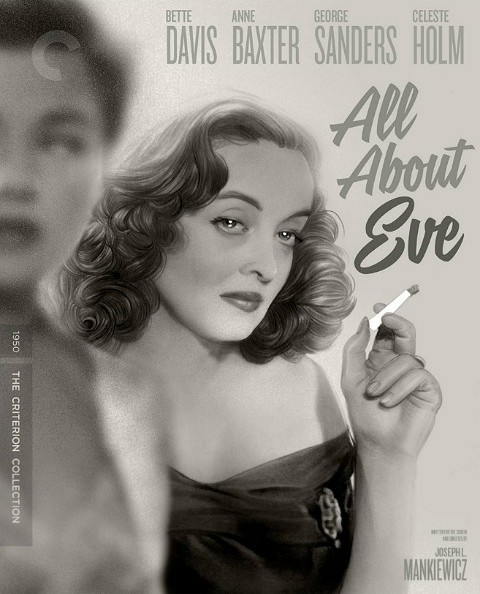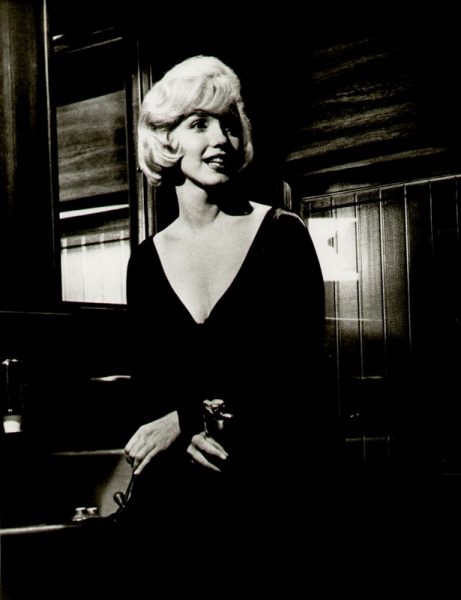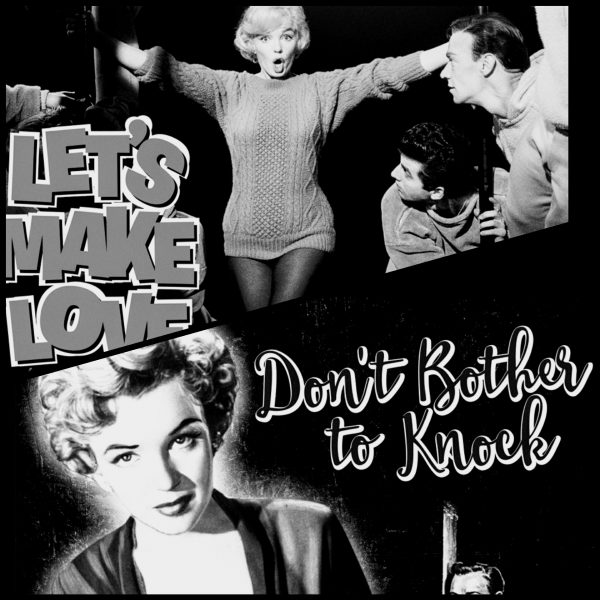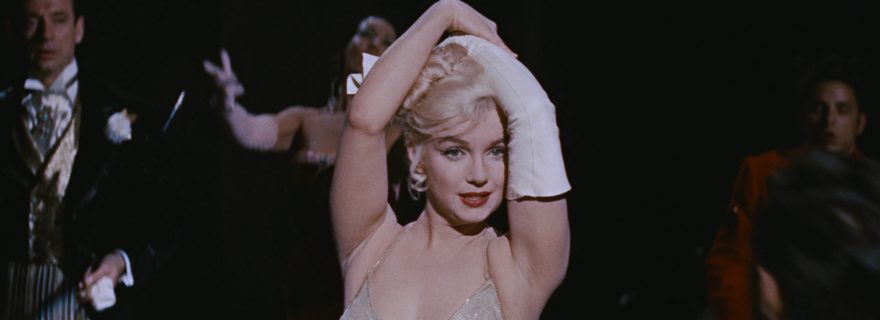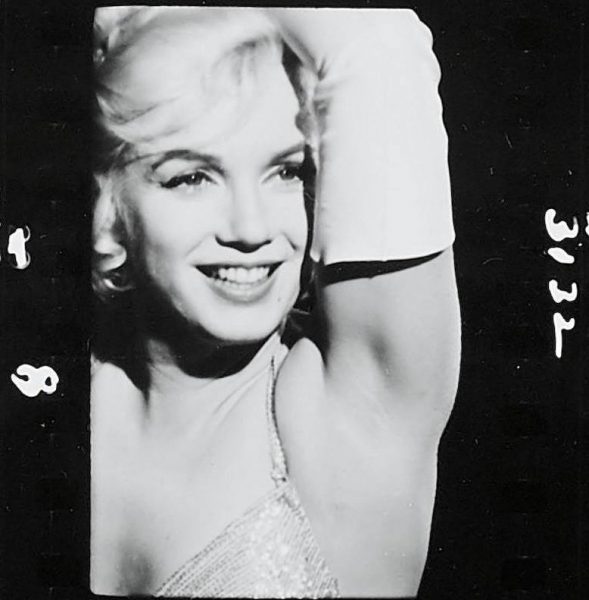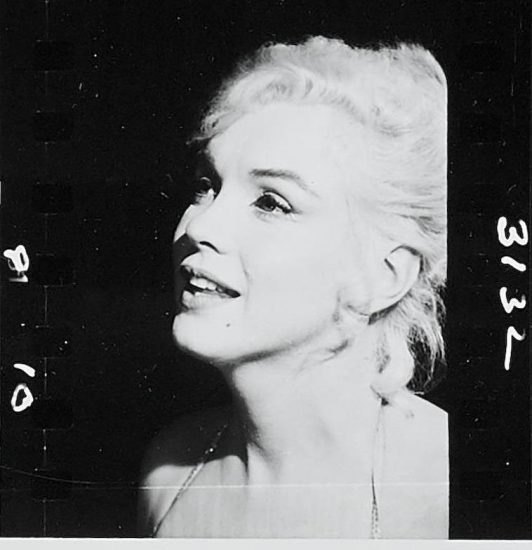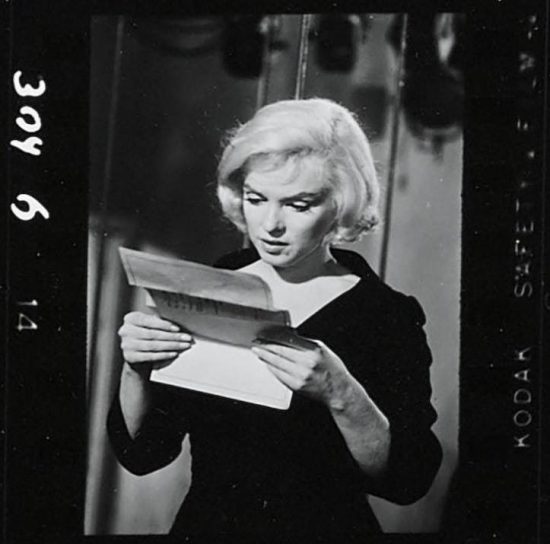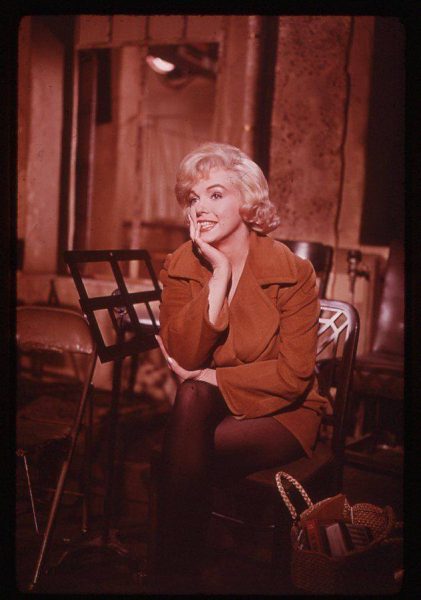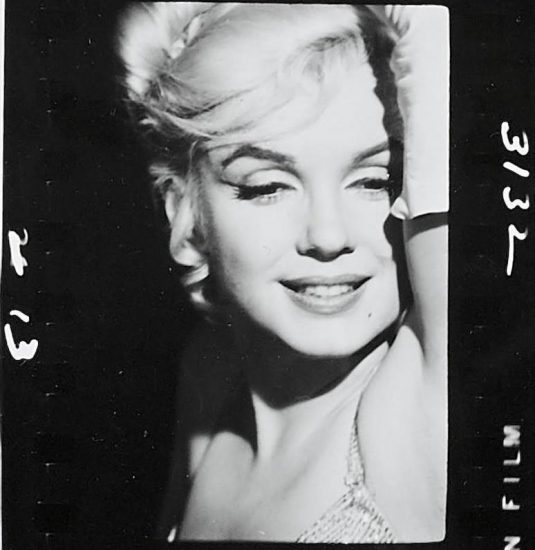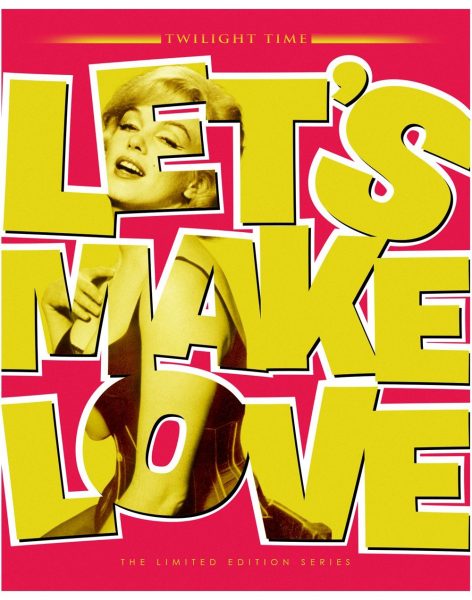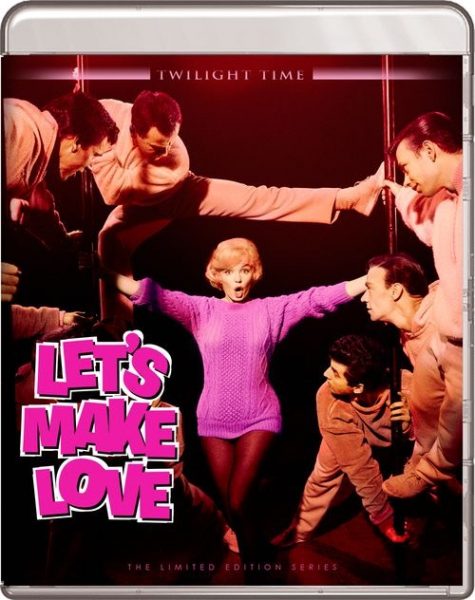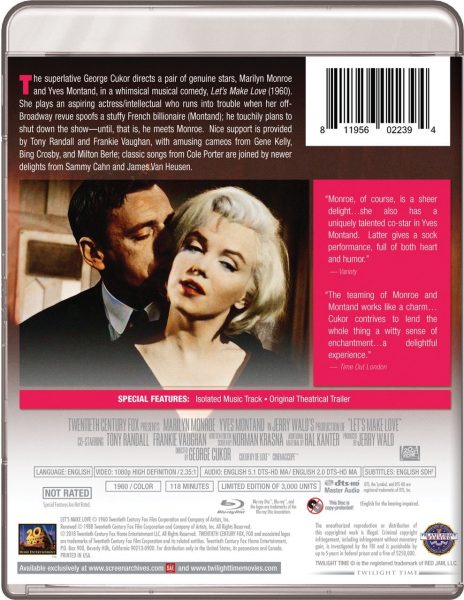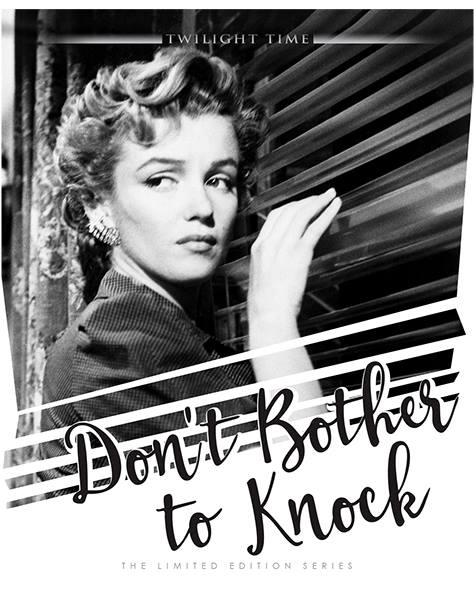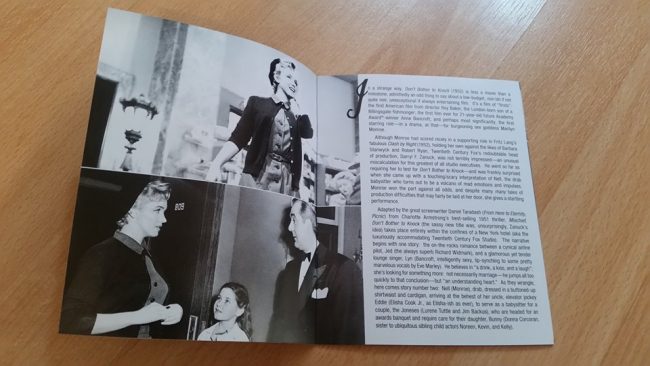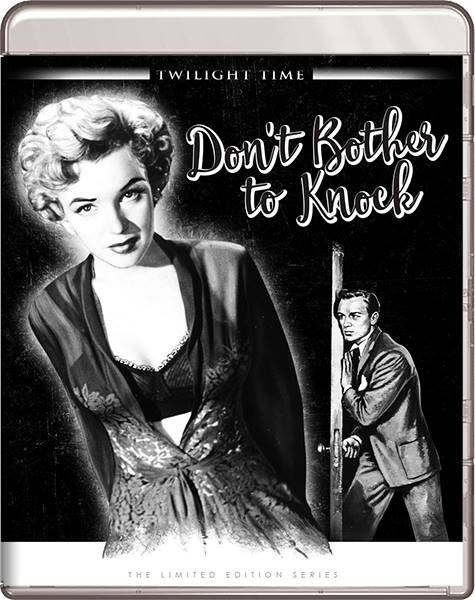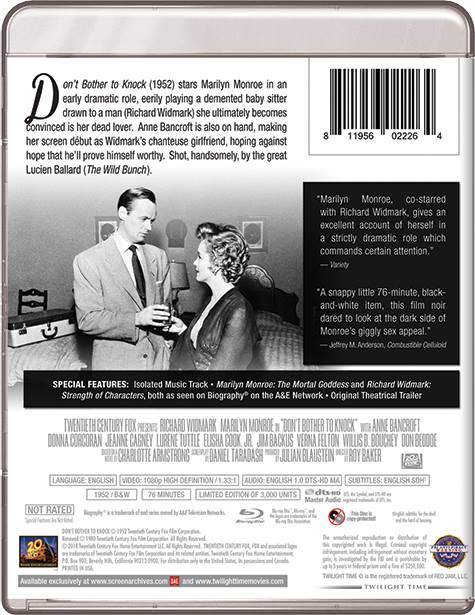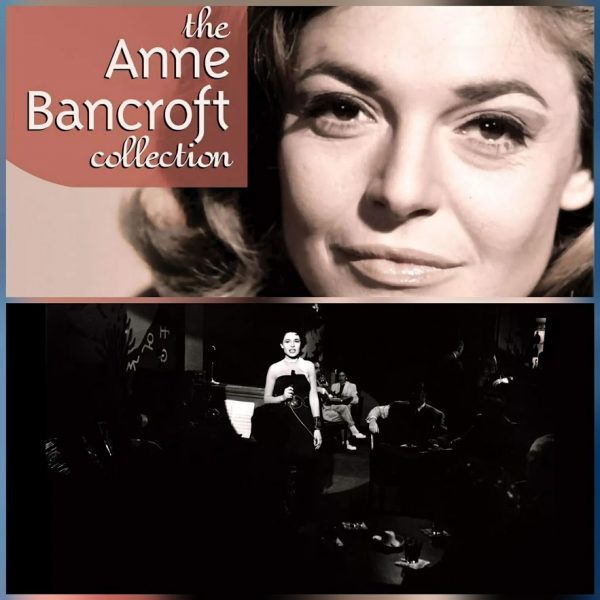
Don’t Bother to Knock (1952) gave Marilyn her first dramatic lead role, and also marked the debut of future Oscar-winner Anne Bancroft. “It was a remarkable experience,” she said of working with Marilyn in the film’s powerful final scene. “Because it was one of those very few times in all my experiences in Hollywood when I felt that give and take that can only happen when you are working with good actors. There was just this scene of one woman seeing another woman who was helpless and in pain, and [Marilyn] was helpless and in pain. It was so real, I responded. I really reacted to her. She moved me so that tears came into my eyes.”
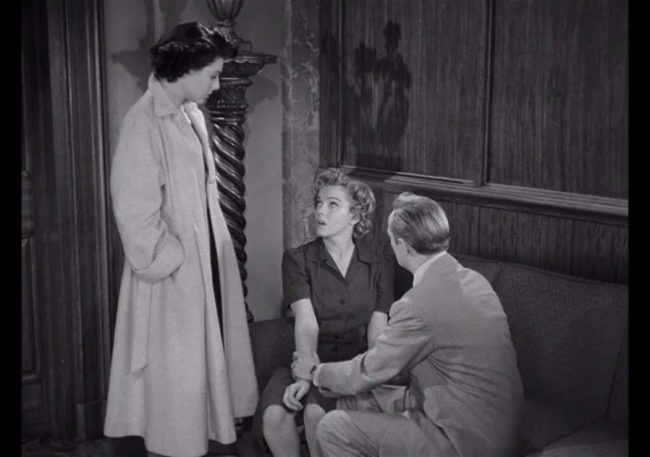
Anne, who died in 2005, is given a long-overdue retrospective in a new Region1/A Blu-Ray set from Shout Factory, with the approval of her husband Mel Brooks. “Not only was she truly gifted but she was smart in every way,” he tells the Chicago Sun-Times. “And these films are GREAT!”
Released today, The Anne Bancroft Collection includes Don’t Bother to Knock, The Miracle Worker, The Pumpkin Eater, The Graduate, Fatso, To Be Or Not To Be, Agnes of God, and 84 Charing Cross Road, plus bonus features and a 20-page booklet.
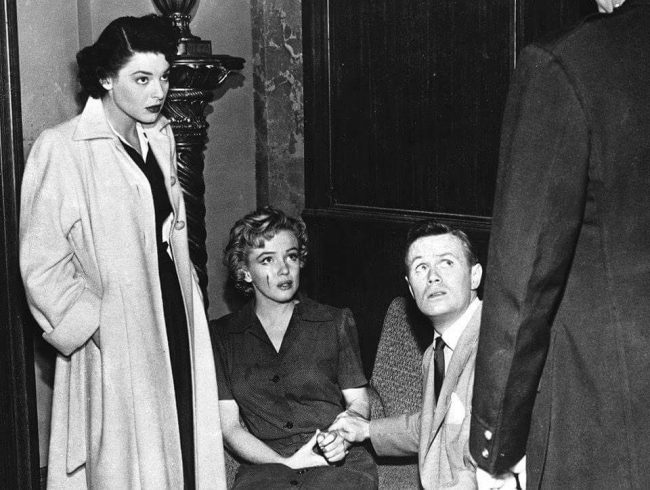
Incidentally, Don’t Bother to Knock – presented in 1080p High Definition (1.37:1) / DTS-HD Master Audio Mono, and accompanied by the original trailer plus isolated music score – was previously released as a stand-alone, limited edition Blu-Ray by Twilight Time Video in 2018.
